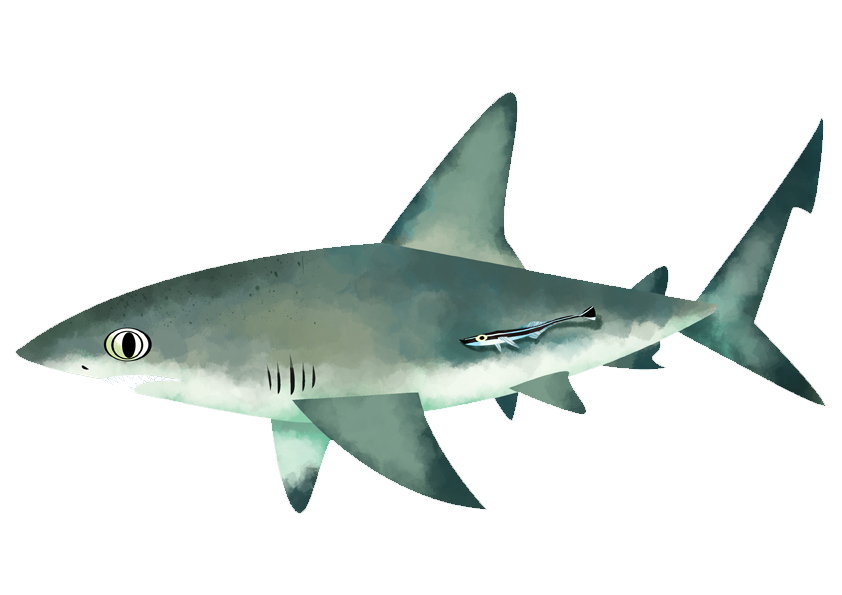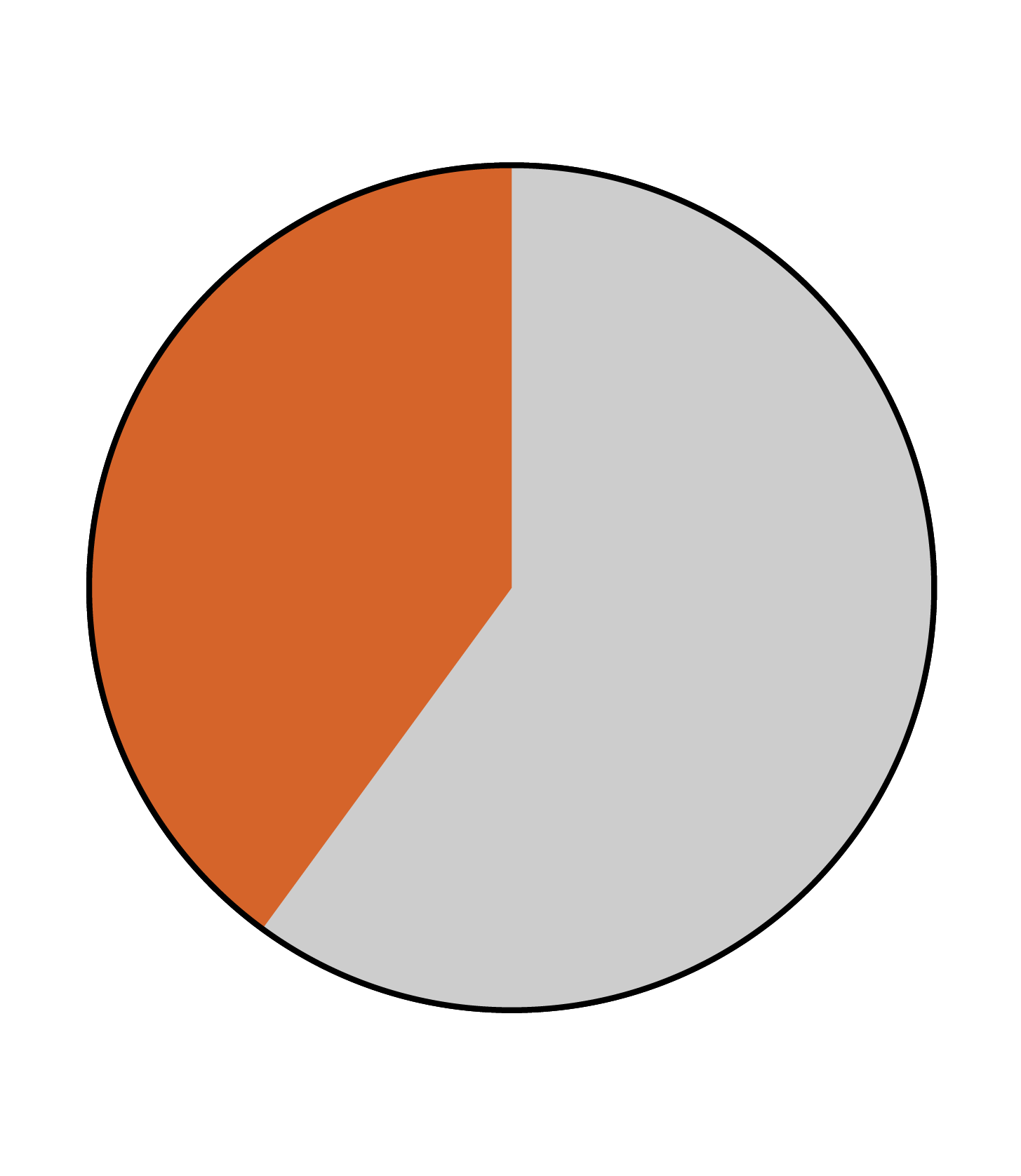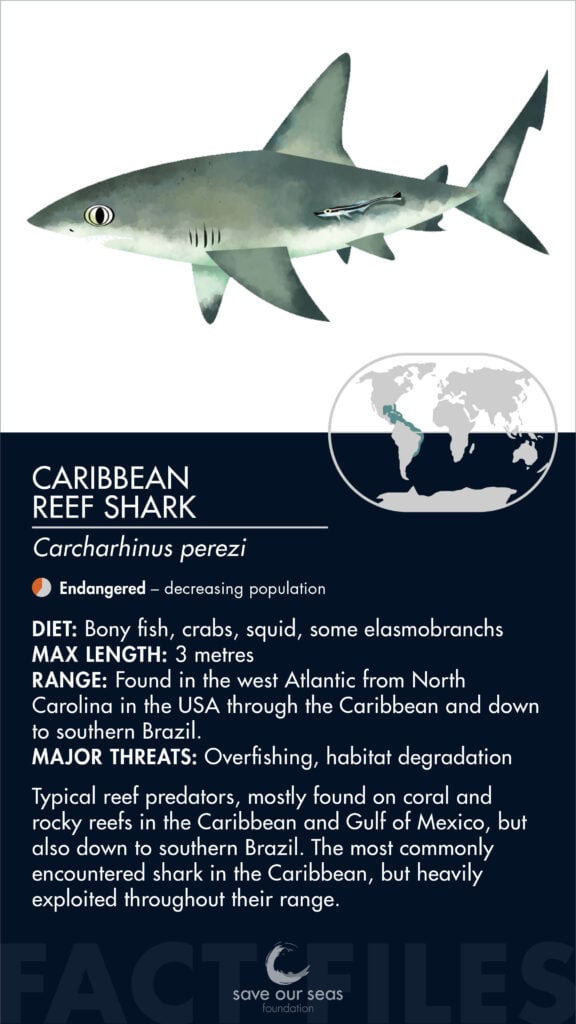Caribbean reef shark
Carcharhinus perezi



Caribbean reef sharks are typical reef predators, mostly found on coral and rocky reefs in the Caribbean and Gulf of Mexico, but also down to southern Brazil. They are the most commonly encountered shark in the Caribbean but are heavily exploited throughout their range.
Identification
Caribbean reef sharks are stereotypical sharks, with few characteristics to make it easy to identify them from other reef sharks. They are generally of moderate size (2–2.5 m), grey in colour and with a darker trailing edge to their tail fin. They also have darker colouration on the underside tips of their pectoral, pelvic and anal fins.

Special behaviour
Unusual for reef sharks, they are capable of resting on the seafloor while pumping water over their gills. They can be reliably observed resting in caves in Florida.
Reproduction
Caribbean reef sharks are viviparous, meaning they have a placenta and give birth to live young. Litters average 4–6 pups, and they are approximately 0.7 m in length when born. It is thought that gestation lasts approximately 12 months, and that reproduction is biennial.
Habitat and geographical range
Caribbean reef sharks are primarily found in coastal and reef habitats in the west Atlantic, from North Carolina in the USA, through the Caribbean, and down to southern Brazil. They are also abundant at some offshore atolls within this range. This species is mainly recorded in shallow waters, and has not been observed deeper than 400 m.

Diet
Caribbean reef sharks primarily consume reef fish, along with cephalopods (e.g. squid) and crustaceans (e.g. crabs). Larger individuals will also eat other elasmobranchs, including the yellow stingray and eagle rays.
Threats
Caribbean reef sharks are heavily exploited in fisheries throughout their range. They are caught both as bycatch and deliberately in gillnet and longline fisheries. They are particularly threatened in the southern extent of their range, where intense, unmanaged artisanal fisheries catch large numbers of them. Climate change and habitat degradation such as pollution are also severely impacting the quality and availability of habitat for this species, with reefs in decline regionally.
Relationship with humans
Throughout their range, Caribbean reef sharks are a valuable resource to fisheries and ecotourism operations. Continued exploitation for their meat and fins has meant the IUCN has categorised them as Endangered. However, the sharks are currently prohibited from capture in US waters, and The Bahamas remains a shark sanctuary, where a significant proportion of the local ecotourism relies on encounters with them.

Fun facts
- Caribbean reef sharks are capable of lying motionless on the seafloor, pumping water over their gills. They are often seen resting like this in caves.
References
David A. Ebert. et al, 2021, Sharks of the World: A Complete Guide.
IUCN Red List of Threatened Species, Caribbean reef shark: Carcharhinus perezi
Florida Museum, 2018, Carcharhinus perezi


